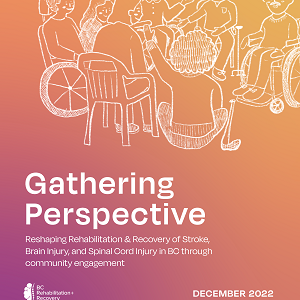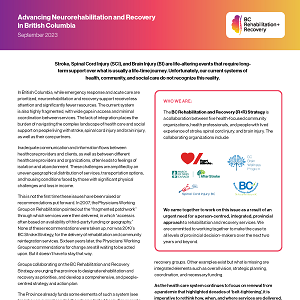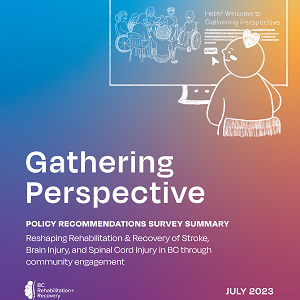Every year in British Columbia, thousands of people experience a stroke, brain injury, or spinal cord injury — adding to the many thousands more who are already living with these conditions.
A diagnosis like this can be devastating. For many, it could mean basic activities like walking, talking, and writing are more of a challenge.
While it is possible to recover or adapt to a new lifestyle, the current rehabilitation system in BC is far from adequate. People who’ve experienced these conditions face barriers and delays in accessing the vital care they need.
To improve the rehabilitation and recovery systems in BC, a collaboration was formed between five health and community organizations and people who face these conditions. This group, with support from the Health Design Lab at the Emily Carr University of Art + Design and the UBC Centre for Health Services and Policy Research, aims to:
- Build the case for a client-centred, systematic, integrated, and organized province-wide approach to rehabilitation and recovery services.
- Highlight and share the case to relevant decision-makers in the province over the next two years and beyond.
What we’re doing

Community engagement workshops
Critical insights were gained from workshops held with medical experts and people living with stroke, brain injuries and spinal cord injuries. Read the full report.

Policy recommendations
Drawing on the discussion and insights from the workshops, high-level recommendations for improving neurorehabilitation and recovery services in British Columbia were developed. Read the policy recommendations.

Policy recommendations survey summary
After recommendations were developed, the Emily Carr Health Design Lab team conducted a province-wide survey asking for feedback. Read the survey summary report.
Our partners
The partner organizations in this project are:

With support from the Health Design Lab, Emily Carr University of Art + Design and the UBC Centre for Health Services and Policy Research.
